Preserving social memory: the UK Web Archive

Yet the average lifespan of a website is reported to be under 3 years, which means many of these will disappear before anyone realises they are gone. That matters – not just for the future, when historians and researchers may want to know more about society in the late 20th and early 21st centuries, but also for the present, when facts have become ‘slippery’.
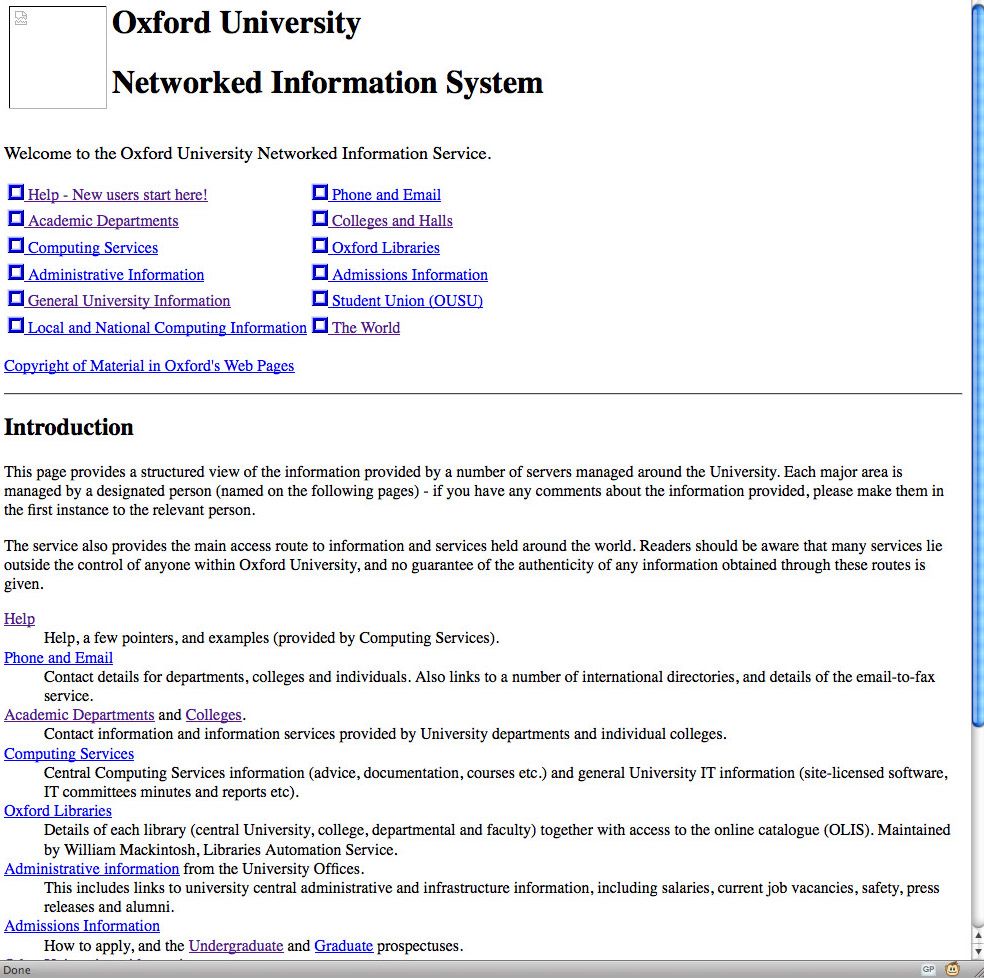
The University of Oxford website in 1997
The UK Web Archive (UKWA) is a collaboration between the UK’s Legal Deposit Libraries, including the Bodleian Libraries; it builds on the precedent set by the original legal deposit privilege, whose origins lie with Thomas Bodley. In an effort to ensure that web content is maintained as an important record of our time, the UKWA aims ‘to collect, preserve and give access to this material for current and future researchers of all kinds’. It crawls and captures the whole of the UK web landscape once per year, with some important websites crawled more frequently – up to daily. It also focuses on culturally specific collections, with content on subjects from Brexit to the Grenfell Tower fire. Members of the public can nominate sites for inclusion.
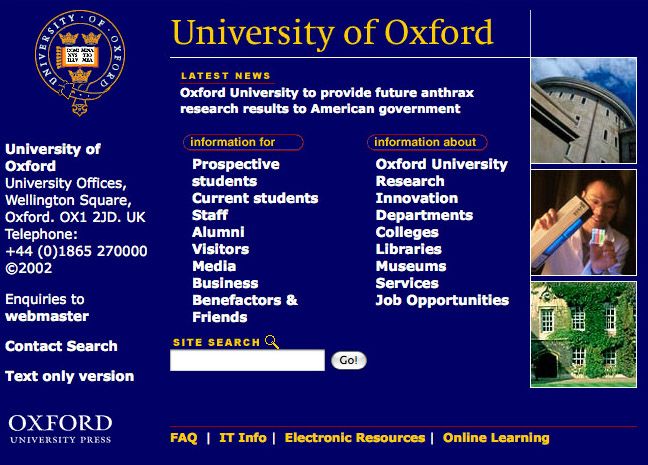
The University of Oxford website in 2002
The Bodleian Libraries go further in maintaining their own web archive, covering topics of relevance to Oxford itself and the work it conducts. This allows the University to be agile in considering what might be of interest to future researchers; for instance, the Libraries are currently seeking knowledgeable help to review and select content related to the invasion of Ukraine. They are also partnering with the National Library of Scotland to archive material about public health discourse online – documenting the proliferation of health information and misinformation related to the COVID-19 pandemic and exploring questions around ‘how we can ethically capture and describe misinformation and fake news for posterity’.
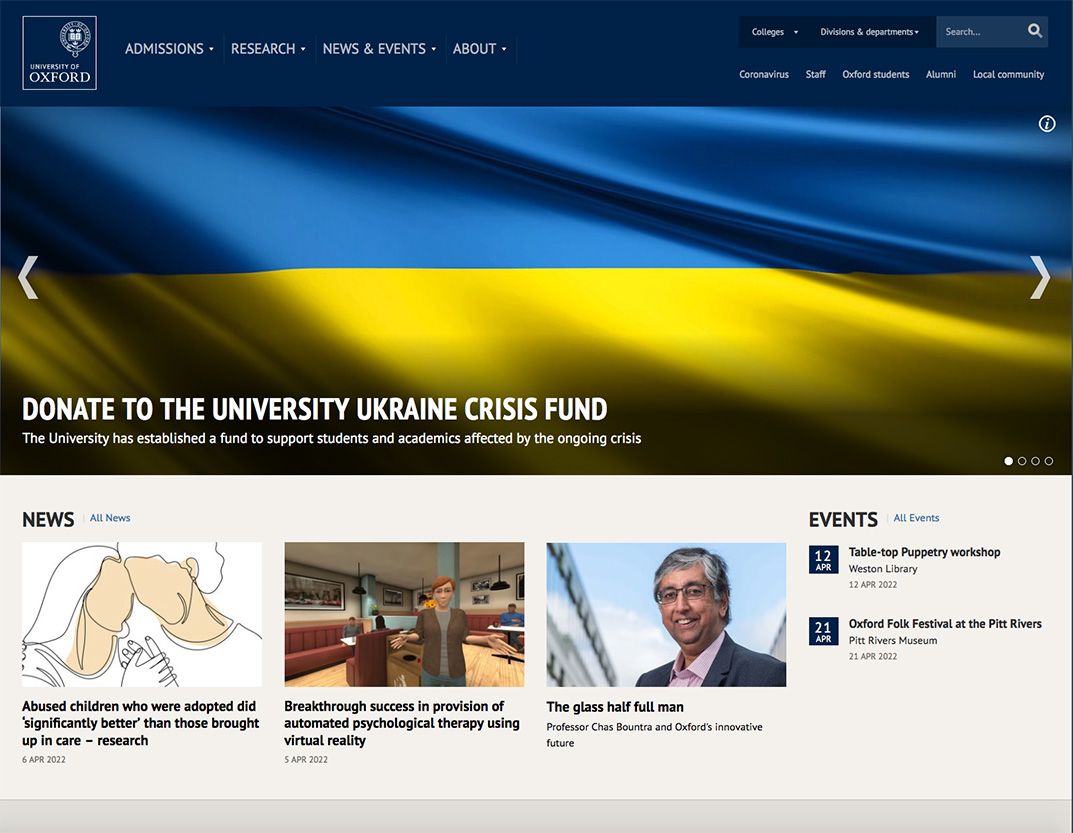
The University of Oxford website in 2022
This work requires specific skills; it is critical that today’s archivists have the skills they need to capture, secure and make accessible these digital sources for future generations. The Bodleian’s Trainee Digital Archivist Programme, running since 2014, is a two-year paid traineeship aimed at equipping graduates with these digital skills. Current trainees work on projects as varied as the Ukraine project and the archives of businessman turned poet Felix Dennis.
The Internet Archive has been doing this for 25 years, but libraries have an important role to play in ensuring this sort of preservation is done by trusted, non-commercial institutions. The Bodleian’s future plans include exploring ways to preserve and provide access to social media content and algorithms – for instance, working with public agencies to build the algorithmic archives needed to maintain confidence in the use of algorithms. This work contributes to transparency, accountability and free access to reliable information – all crucial for the functioning of a free and democratic society.

The University of Oxford website in 1997
The University of Oxford website in 1997

The University of Oxford website in 2002
The University of Oxford website in 2002
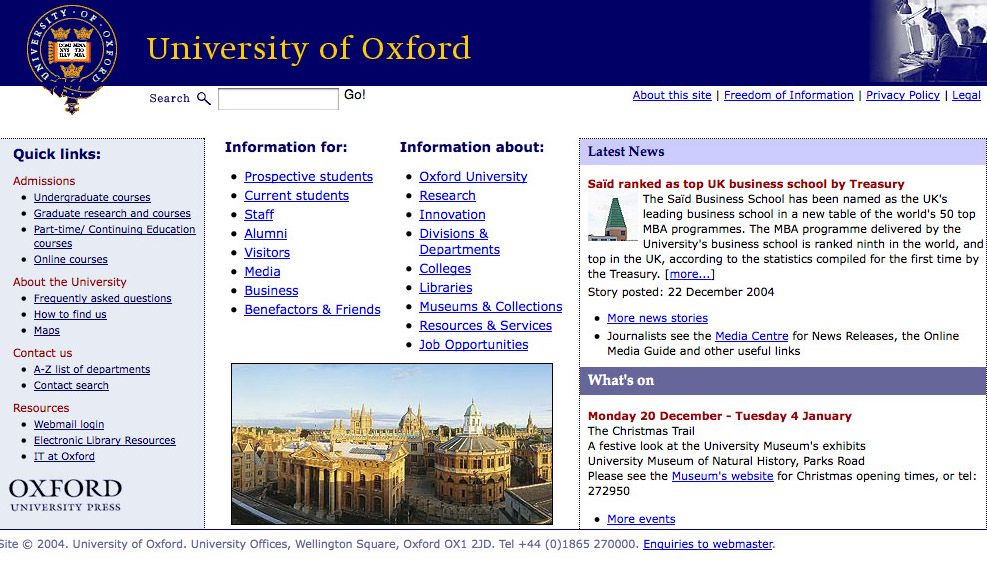
The University of Oxford website in 2005
The University of Oxford website in 2005
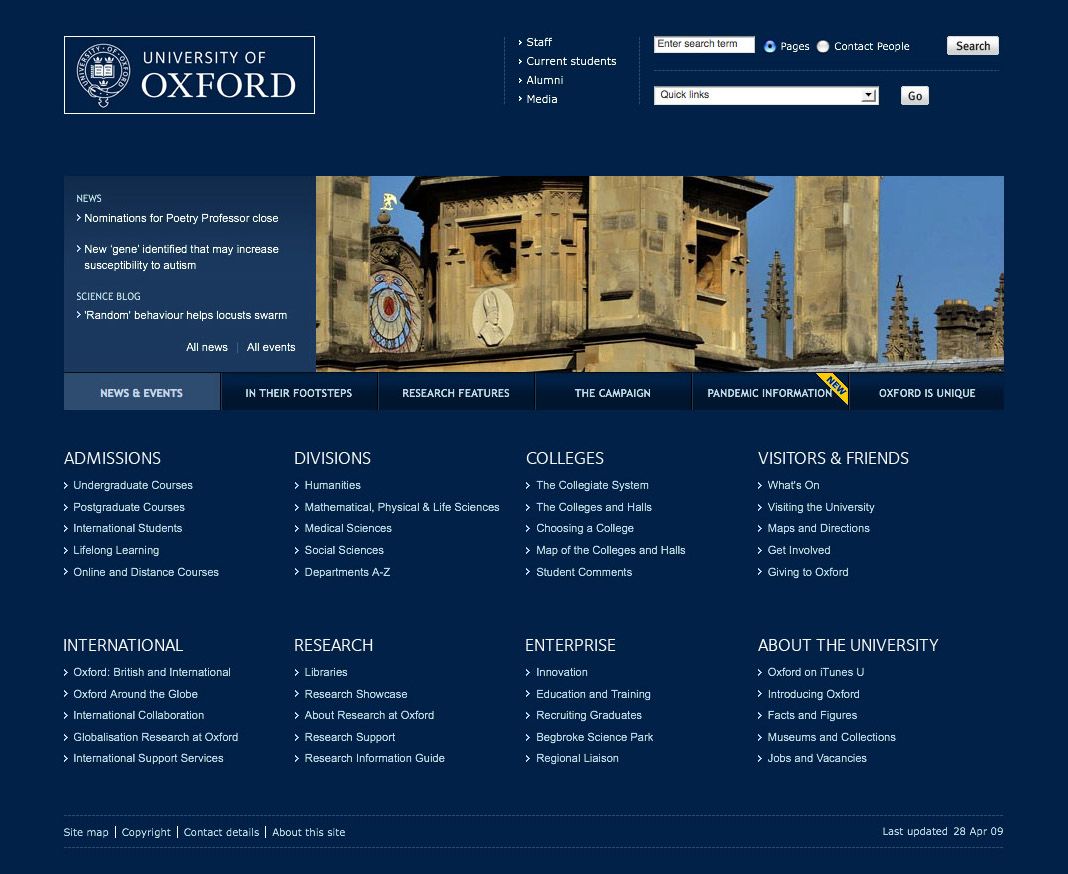
The University of Oxford website in 2008
The University of Oxford website in 2008

The University of Oxford website in 2022
The University of Oxford website in 2022
'The web is a dynamic place with huge influence. The longevity of information, its reliability, its flow, is difficult for most of us to fully comprehend, but it couldn’t be more important. Archiving online information contributes to transparency, accountability and free access to previously available information – all crucial for the functioning of a free and democratic society.'
Susan Thomas, Head of Archives & Modern Manuscripts, Bodleian Libraries


